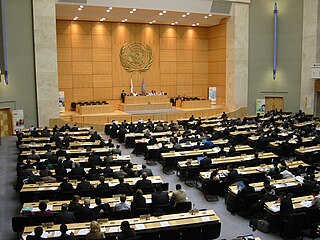
The World Summit on the Information Society (WSIS) was a two-phase United Nations-sponsored summit on information, communication and, in broad terms, the information society that took place in 2003 in Geneva and in 2005 in Tunis. WSIS Forums have taken place periodically since then. One of the Summit's chief aims is to bridge the global digital divide separating rich countries from poor countries by increasing internet accessibility in the developing world. The conferences established 17 May as World Information Society Day.
The Association for Progressive Communications (APC) is an international network of organizations that was founded in 1990 to provide communication infrastructure, including Internet-based applications, to groups and individuals who work for peace, human rights, protection of the environment, and sustainability. Pioneering the use of ICTs for civil society, especially in developing countries, APC were often the first providers of Internet in their member countries.
Internet activism involves the use of electronic-communication technologies such as social media, e-mail, and podcasts for various forms of activism to enable faster and more effective communication by citizen movements, the delivery of particular information to large and specific audiences, as well as coordination. Internet technologies are used by activists for cause-related fundraising, community building, lobbying, and organizing. A digital-activism campaign is "an organized public effort, making collective claims on a target authority, in which civic initiators or supporters use digital media." Research has started to address specifically how activist/advocacy groups in the U.S. and in Canada use social media to achieve digital-activism objectives.

Take Back the Night is an international event and non-profit organization with the mission of ending sexual, relationship, and domestic violence in all forms. Hundreds of events are held in over 30 countries annually. Events often include marches, rallies and vigils intended as a protest and direct action against rape and other forms of sexual, relationship and domestic violence. In 2001, a group of women who had participated in the earliest Take Back the Night marches, came together to form the Take Back the Night Foundation in support of the events throughout the United States and the world.

Information and communications technology (ICT) is an extensional term for information technology (IT) that stresses the role of unified communications and the integration of telecommunications and computers, as well as necessary enterprise software, middleware, storage and audiovisual, that enable users to access, store, transmit, understand and manipulate information.

Herbert Jose "Betinho" de Souza was a sociologist and activist against economic injustice and government corruption in Brazil and founder of the Brazilian Institute of Social Analysis and Economics (IBASE). In 1963, he became chief of staff in the Ministry of Education, but exiled himself after the military took power in the 1964 Brazilian coup d'état.
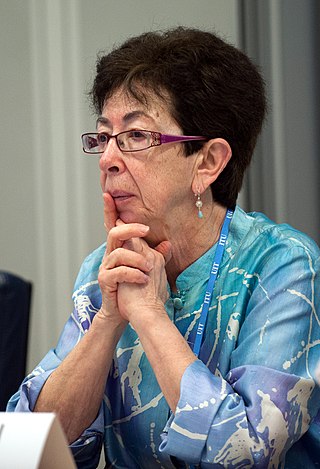
Nancy Jane Hafkin is a pioneer of networking and development information and electronic communications in Africa, spurring the Pan African Development Information System (PADIS) of the United Nations Economic Commission for Africa (UNECA) from 1987 until 1997. She also played a role in facilitating the Association for Progressive Communications's work to enable email connectivity in more than 10 countries during the early 1990s, before full Internet connectivity became a reality in most of Africa.
The Foundation for Media Alternatives (FMA) is as a non-government organization formed in 1986. Since its founding, FMA has "sought to enhance the popularization and social marketing of development-oriented issues and campaigns through media-related interventions, social communication projects, and cultural work."' It is a member of the Association for Progressive Communications (APC).

Women of Uganda Network (WOUGNET) also known as Women of Uganda Network Development Limited is Ugandan non-governmental organization that aids women and women's organisations in the use and access of information and communication technologies (ICTs) to share information and address issues their concerns such as gender norms, advocating for their rights and building communities and businesses through education.
BytesForAll is a South Asian initiative to focus on how information technology and the internet can help in taking up social development issues. It is one of the oldest ICT4D networks in South Asia. It was launched at a time when ICT4D was yet to become a buzz-word on the development circuit, and was still largely unnoticed for its potential.
The Gender Evaluation Methodology (GEM) is an evaluation methodology that integrates a gender analysis into evaluations of initiatives that use information and communications technologies (ICTs) for social change. It is an evaluation tool for determining whether ICTs are really improving or worsening women's lives and gender relations, as well as for promoting positive change at the individual, institutional, community and broader social levels.
Karen Banks is a British computer networking pioneer who was inducted to the Internet Hall of Fame in 2013 as a "Global Connector".
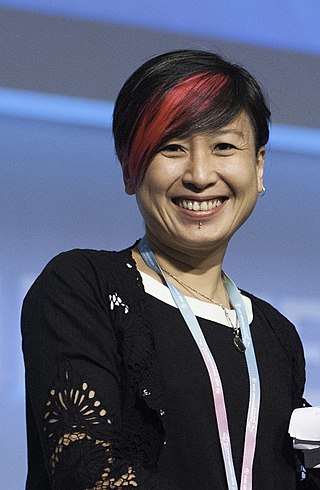
Jac sm Kee is a feminist activist, writer and researcher from Malaysia. She led the Association for Progressive Communications Women's Rights Programme, which works to address online violence against women, advocates for feminist digital security, supports research on the intersection of digital technology and gender justice, and facilitates network and movement building on feminism and technology.
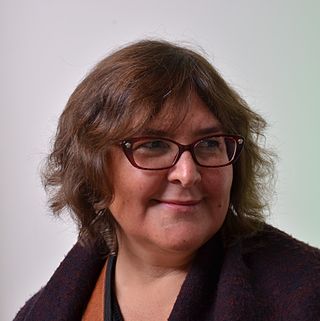
Anriette Esterhuysen is a human rights defender and computer networking pioneer from South Africa. She has pioneered the use of Internet and Communications Technologies (ICTs) to promote social justice in South Africa and throughout the world, focusing on affordable Internet access. She was the executive director of the Association for Progressive Communications from 2000 until April 2017, when she became APC's Director of Policy and Strategy. In November 2019 United Nations Secretary-General António Guterres appointed Esterhuysen to chair the Internet Governance Forum’s Multistakeholder Advisory Group.

Jennifer Radloff is a South African feminist activist and a pioneer on Information and communications technology (ICT) for social justice. She works for the Association for Progressive Communications (APC) in the Women's Rights Programme and is a board member of Women's Net.
Valentina Hvale Pellizzer is a sexual rights human rights activist and feminist internet writer. She facilitated seminars, conferences and workshops on ICT, technology, digital storytelling, citizen journalism, digital security and privacy throughout the world. She is known for connecting women's rights, sexual rights, the internet politically and practically and as an advocate for a feminist internet in Bosnia and Herzegovina and wider. She is also known for having founded the alternative feminist portal zenskaposla.ba in Bosnia and Herzegovina.

Chat Garcia Ramilo is a feminist activist. She has over twenty years experience in different activities with Information and communications technology (ICT). Since April 2017, she leads the Association for Progressive Communications (APC). She is the Board Chair of the Center for Migrant Advocacy in the Philippines and a Board Member of the Association for Women's Rights in Development (AWID).

Online gender-based violence is targeted harassment and prejudice through technology against people, disproportionately women, based on their gender. The term is also similar to online harassment, cyberbullying and cybersexism, but the latter terms are not gender-specific. Gender-based violence differs from these because of the attention it draws to discrimination and online violence targeted specifically because of their gender, most frequently those who identify as female. Online gender-based violence can include unwanted sexual remarks, non-consensual posting of sexual media, threats, doxing, cyberstalking and harassment, and gender-based discriminatory memes and posts among other things. Online gender-based violence derives from gender-based violence but it is perpetuated through electronic means. The vulnerable groups include the asexual, bisexual, gay, intersex, trans, intersex, queer, and lesbian. Online gender-based violence may occur through various ways. These include impersonation, hacking, spamming, tracking and surveillance, malicious sharing of intimate messages and photos.
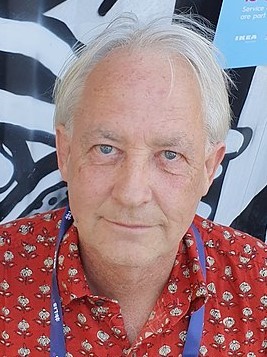
Mike Jensen is a South African ICT expert who was inducted into the Internet Hall of Fame as a "Global Connector" in 2017. He is particularly known for his work to build networks connecting the non-profit sector and for assisting developing countries to establish network connectivity.
Valeria Betancourt is an Ecuadorian sociologist, human rights defender and pioneer in the use of information and communication technologies (ICT) to promote the development and empowerment of citizens in Latin America and globally.











